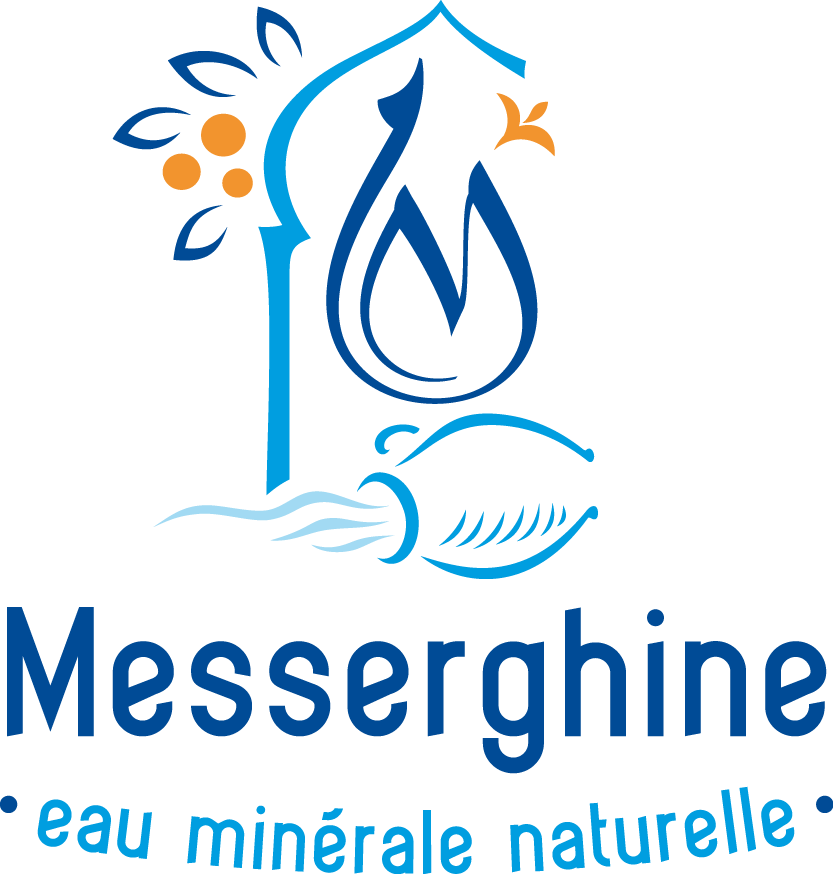Industrial zone number 1
Route du Lac, Misserghin
Oran Province31180, Algeria.
Phone :
213 555 04 85 20 / 213 555 04 85 27
Please click on the icon to choose the language:
Frequently Asked Questions
> What is the difference between the waters?Mineral water is a food product that has obtained official certification. Few treatments are allowed for mineral water. In fact, mineral water is protected at the source: there is no disinfection treatment, because the measures taken upstream protect the aquifer system from any external pollution.Finally, mineral water must have an underground origin. Its mineral composition is stable, which is not the case with spring water. Tap water can be treated by chemical processes to guarantee drinking water standards. It also has various origins (desalinated seawater, dam water for example).
> How is the quality of Messerghine mineral water guaranteed?Regular checks are carried out throughout the production chain both by our internal laboratory and by external laboratories approved by the State.The Official Journal determines exactly what makes a water mineral, how the bottle should be labeled, transported. Mineral water must be bottled on site to guarantee the consumer a quality product.
> What is the shelf life of bottled mineral water?All food products have an expiration date. Mineral water is no exception to this rule. However, a shelf life of one year is recommended for PET mineral water bottles, under optimal storage conditions. This means that mineral water must be kept in a clean, dry place, away from light and heat to keep all its properties.
> How much water should a person drink each day?The human body is composed - depending on age and sex, but also on the proportion of fat and / or muscle - from 50 to 80% water.We lose every day, without making any particular physical effort, from two to two and a half liters of water.Although part of this amount is reintroduced daily through our diet, we must rehydrate our body through drinking. Indeed, too much water loss, unbalances our body and has harmful consequences on our health.Nutritionists are unanimous, they recommend a consumption of two liters of water per day. However, in the event of intellectual or physical efforts, the needs increase (sport, examination, driving, etc.)
> Is it correct that if we spread our consumption of mineral water over a day, our bodies will be able to absorb the minerals better?That is true. Scientific studies have shown that the human body better absorbs the calcium and magnesium contained in mineral water, when these are distributed in small quantities over a day. If the minerals are consumed in large quantities at once, the body will eliminate during the digestion process what cannot be assimilated by the body.
> How can our body accommodate the calcium contained in Messerghine mineral water?Scientific studies attest to the bioavailability of mineral water.The minerals contained in water are dissolved and can therefore be particularly well absorbed by our body.
Furthermore, Messerghine mineral water is a natural, non-calorific product and provides our bodies with essential minerals. This is all the more true for people who have developed lactose allergies.
> What are the recommendations for children?The amount of liquid taken in a day is important, but the quality of what is consumed is just as important. Messerghine mineral water is perfect for quenching the thirst of children and adolescents. From early childhood, moderately mineralized water is recommended to promote the development of the youngest. Juices and teas should not be included in the recommended drinks. They are calorific and can damage teeth. In addition, they do not really quench thirst, given the sugar level they contain.In case of heat and physical exertion, the water requirements increase. The body loses important minerals (especially sodium and magnesium). Messerghine mineral water contributes to their water balance.
| Age | Liquid in ml |
|---|---|
| 1 to less than 4 years | 820 (approximately 4 glasses per day) |
| 4 to less than 7 years old | 940 |
| 7 to less than 10 years | 970 |
| 10 to less than 13 years old | 1.170 |
| 13 to less than 15 years old | 1.330 |
| 15 to less than 19 years old | 1.530 |
> What are the recommendations for the elderly?Rehydration of the elderly is a real challenge. Indeed, with the elderly no longer have a real feeling of thirst. It is therefore very important for them to think about drinking regularly. Small mental aids such as drinking a glass of mineral water with each meal or after each physical activity (walking, cleaning, sports activities) can help.As a reminder, mineral water is considered to be low in sodium when it contains less than 20 mg / l. Mineral water is considered to be sodium from 200 mg / l.With a rate of 45 mg / l, Messerghine mineral water is suitable for a diet that is not low in mineral salts. Indeed, mineral salts are particularly recommended for people suffering from dehydration or imbalance in water balance.Finally, the minerals contained in Messerghine water are particularly suitable for people who need a diet rich in calcium (for the preservation of their bones and teeth) and magnesium (to promote concentration).
> What are the recommendations for athletes?Each sporting activity causes the human body to lose an average of 1 liter of water per hour through sweating. Sweating has a salty "taste" because it contains sodium. When we sweat it means that we are losing minerals that need to be replaced. Always favor water rich in potassium, magnesium and calcium to rebalance your water balance. You are on the safe side with Messerghine mineral water.
Where to find us ?
Industrial zone number 1,Route du Lac, Misserghin, Algeria.
Click on the Google Maps logo to locate us.
Contact
Contact you, we answer all your questions in relation to our services and our products.
E-mail :
contact@eau-messerghine.com
Phones:
213 555 04 85 20 /213 555 04 85 27
Opening time :Sunday to Thursday from08: 30-17: 00




